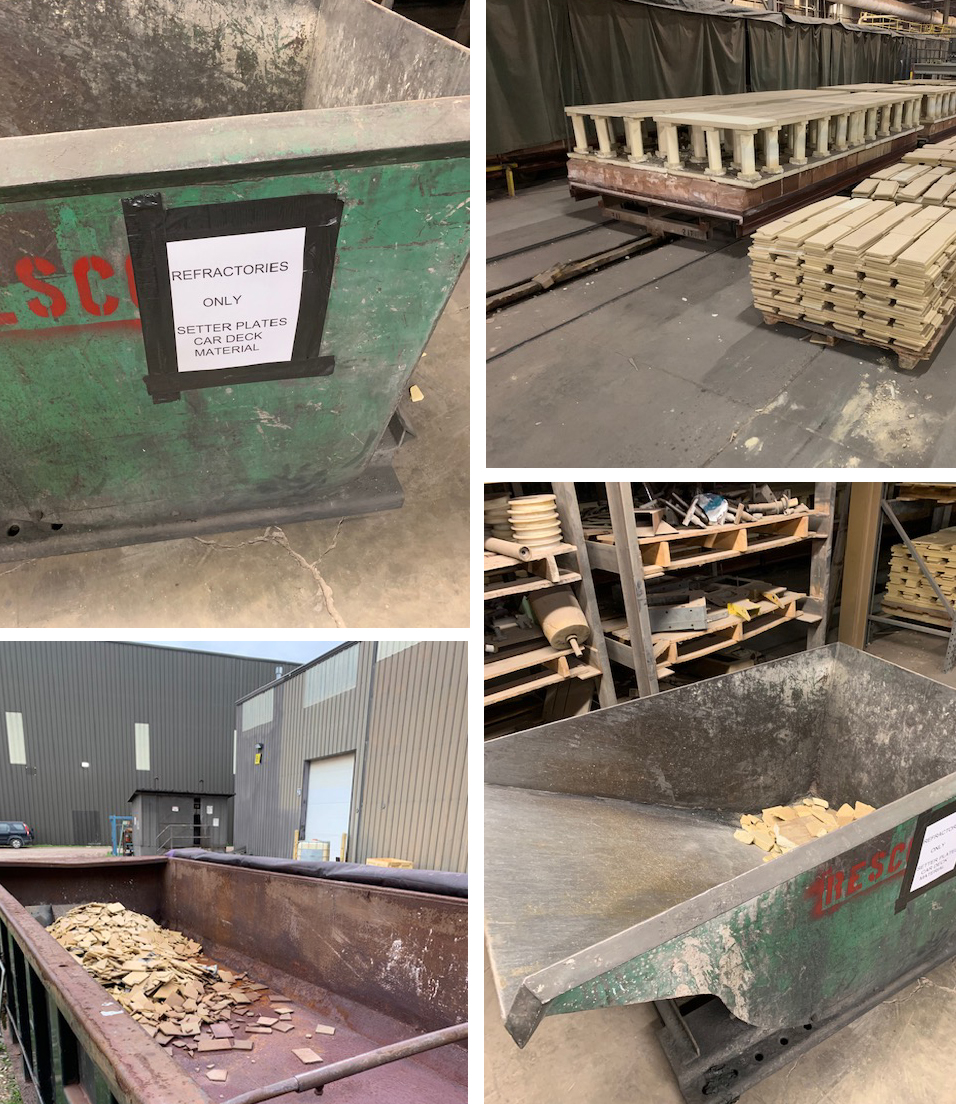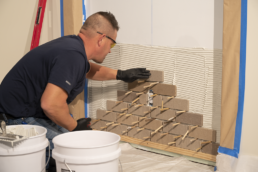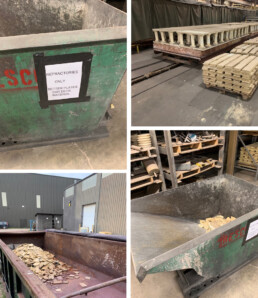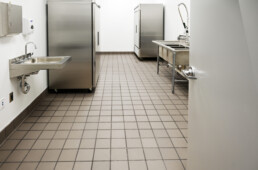We created a new video - How to Install Thin Brick over an Interior Wall.

Ironrock Begins Refractory Recycling Program
Refractories are the plates, posts, and blocks that let our tile and brick go through our kilns. Although they can withstand high temperatures, they are easy to break. Each year, we replaces broken refractories. In the past, broken refractories have been crushed into aggregate along with fired scrap but recently we began a program to return them to our local refractory supplier to use as grog. Grog is ground up refractories that help new refractory pieces use less energy and material to fire and produce. This helps our supplier because they need more grog.
Ironrock is pleased that our broken refractories will be re-used to make new refractories and add to the list of materials we recycle and re-use.
Learn more about Ironrock's recycling program.

Metropolitan Ceramics Meets & Exceeds New Slip Resistance Designations
For many years, the 0.42 Dynamic Coefficient of Friction (DCOF) measurement has been the industry-accepted norm for interior, horizontal surfaces that can be expected to be wet. Now there are also five designations, Interior Dry, Interior Wet, Interior Wet Plus, Exterior Wet, and Oils and Greases incorporated into the standard.
Areas of Use
We have included an additional category beyond the scope of A326.3 which we are calling “Enhanced Grip”. All products are routinely used in the five categories listed but products that include our Quarry Basics® XA-Abrasive and our Metro Tread® can be used in even more demanding applications such as ramps. We encourage you to contact us with your specific application to find out which Metropolitan Ceramics product is suitable for your needs.

Join Ironrock's Sr. VP of Operations, Daniel Marvin, as he examines slip resistance and the NEW Areas of Use Table - ANSI A326.3




